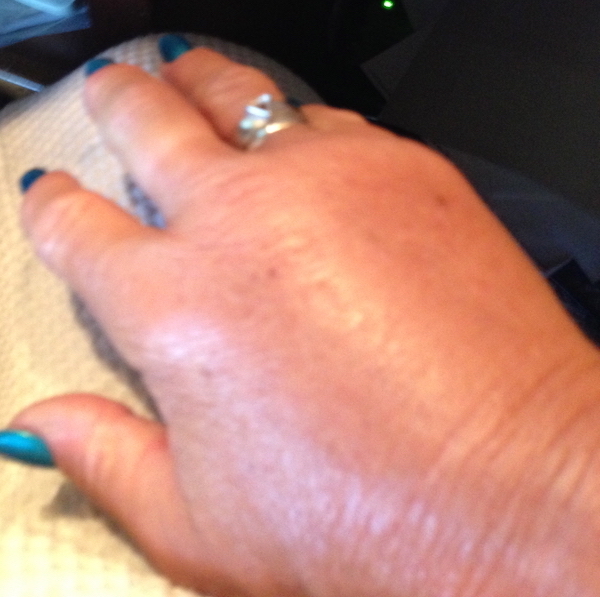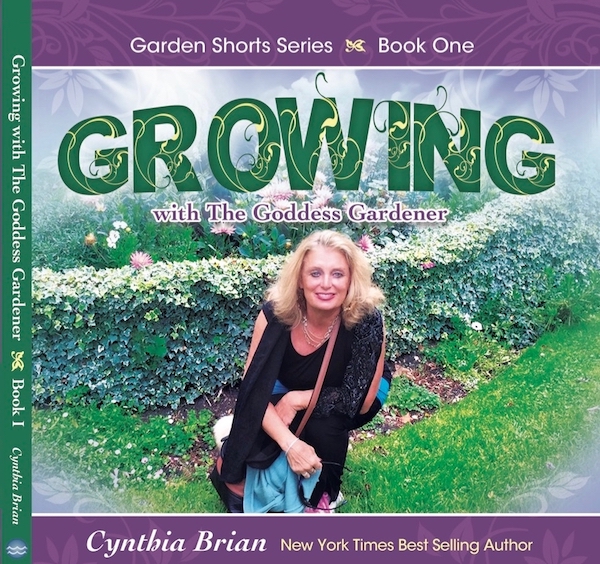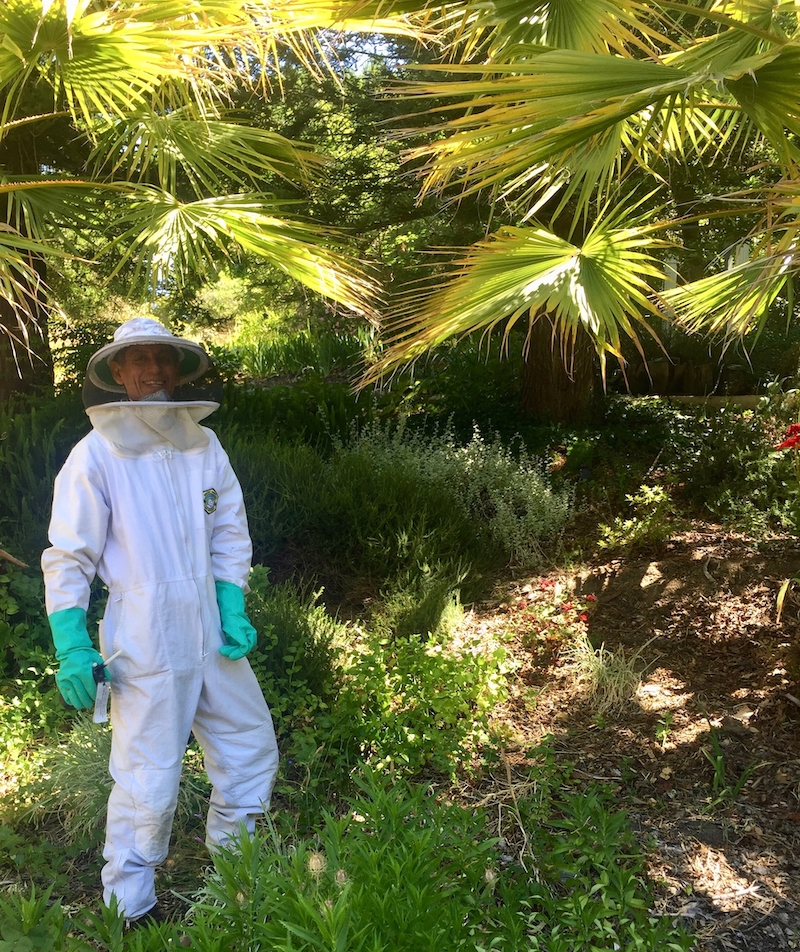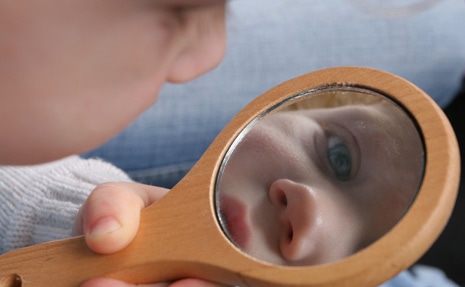When we think of yellowjackets, we normally associate these pesky stingers with interrupting barbecues, picnics, and outdoor festivities during the summer months. What most people don’t realize is that yellowjackets are the most aggressive during late autumn to mid-December. These wasp=like, six-legged, black and yellow flying pests are found anywhere throughout the United States wherever humans commune. Although they are pollinators, they eat meat, fish, and sugary foods. They are also attracted to perfumes and sweet smells.
At this time of year, larvae in the cells mature into males and females who mate. For this reason, the workers are diligently protecting the nest and will attack with a vengeance anyone that comes near. The nests are usually in a hole in the ground, in a bush, or at the base of a tree, although they will build nests in attics or other living spaces. If you are raking leaves and inadvertently come close to an area where a yellowjacket nest resides, a swarm of stinging scavengers will chase you, stinging repeatedly, sometimes causing dire allergic reactions. When we brush off or kill these insects, they release a pheromone that signals other yellow jackets nearby to attack. They are extremely territorial and if the nest is not exterminated, the fertilized eggs that hatch into queens in the spring will create a new nuisance…many more colonies of these pests. The workers will die when the weather turns extremely cold and the queen goes into hibernation.
If you detect a swarm of yellowjackets, call either an extermination company for a paid service or Vector Control for free extermination at (925) 685-9301.
Remedies for yellowjacket stings:
Because yellowjackets are defending their colony, they can be very aggressive and dangerous.
If you or your pet is allergic or are stung multiple times, seek medical assistance immediately. Besides the pain, swollenness, and itching, a large quantity of venom can cause nausea, fever, vomiting, fever, fainting, and anaphylactic shock. Delayed reactions, such as encephalitis, that occur weeks after a sting are rare but do occur. Contact your physician.
For immediate treatment of mild stings using a home remedy, make sure the stinger is not embedded in the skin. If you are outside, apply a compress of cold mud. As soon as possible do any of the following:
- 1. Take an antihistamine according to package directions.
- 2. Hold an ice pack covered in a thin cloth on the area.
- 3. Make a paste of baking soda and water and apply to affected areas. The alkalinity in the baking soda neutralizes the venom.
- 4. A cotton ball application of undiluted ammonia, vinegar, or toothpaste works in the same manner. The acid in vinegar reduces swelling and inflammation.
- 5. Two or three aspirins can be crushed and mixed with water to make a paste to apply to the stings. The anti-inflammatory properties will assist in the control of swelling and pain.
- 6. Spread honey on the stings to reduce pain and itching. Leave on the skin for thirty minutes before rinsing with warm water. Reapply as necessary.

Remember that yellowjackets are not bees. They are wasps. Don’t confuse the two.
Photos and more: https://www.lamorindaweekly.com/archive/issue1321/Alert-Protect-yourself-from-yellowjackets-on-the-rampage.html
Cynthia Brian is the author of Growing with the Goddess Gardener and the Digging Deep columnist for the Lamorinda Weekly. www.CynthiaBrian.com
Cynthia Brian, The Goddess Gardener, raised in the vineyards of Napa County, is a New York Times best-selling author, actor, radio personality, speaker, media and writing coach as well as the Founder and Executive Director of Be the Star You Are!® 501 c3.
Tune into Cynthia’s StarStyle® Radio Broadcast at www.StarStyleRadio.com.
Buy a copy of her books, Growing with the Goddess Gardener and Be the Star You Are! Millennials to Boomers at www.cynthiabrian.com/online-store.

Hire Cynthia for writing projects, garden consults, and inspirational lectures.
Cynthia@GoddessGardener.com






